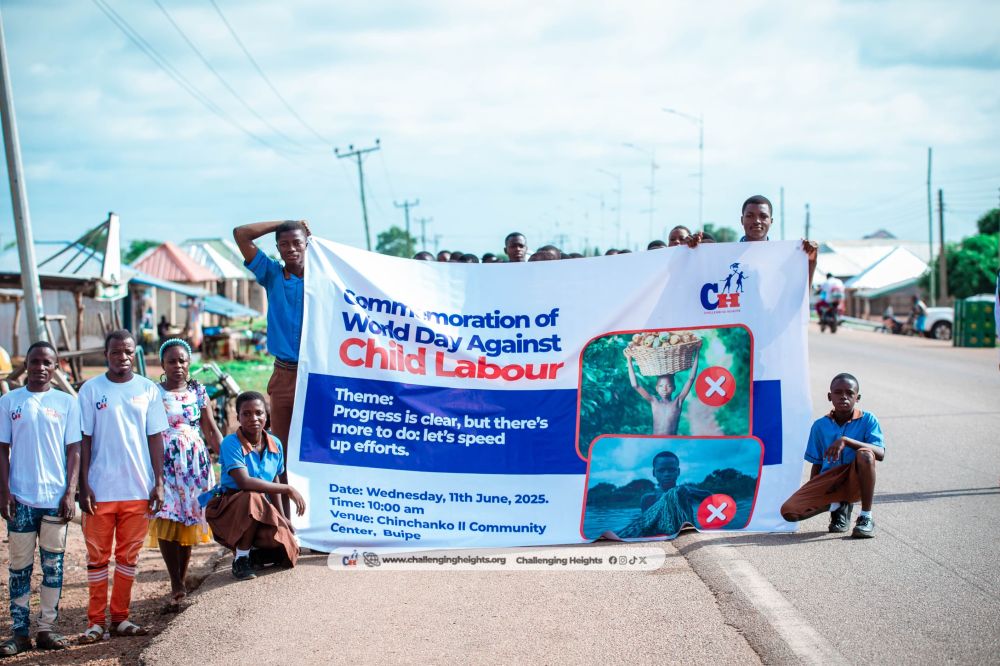Ghana's Child Labour Crisis: Progress Made, But Urgent Action Needed !
Buipe, Savannah Region – As Ghana joins the world in commemorating the 2025 World Day Against Child Labour on June 12, Challenging Heights delivers a stark warning: despite progress, the nation risks failing its children unless urgent action is taken to eliminate exploitative labour practices.
A grand community durbar held in Buipe under the global theme “Progress is clear, but there’s more to do: let’s speed up efforts,” brought together traditional, religious, and political leaders, government officials, law enforcement, and civil society. Enock Dery Pufaa, Programs Director of Challenging Heights, delivering the keynote address emphasized that while Ghana has made strides such as ratifying International Labour Organization (ILO) conventions, implementation gaps persist, particularly in rural areas.
He added that the theme for this year makes the day both a commemoration and a warning. It tells us that we have indeed made progress in the fight against child labour. But it also sounds the alarm: the pace of change is too slow, and millions of children remain trapped in harmful and exploitative work, he said.
Globally, the number of children in child labour according to International Labour Organization (ILO) and UNICEF has dropped by 22 million since 2020, reversing a previous upward trend. Yet, the world has collectively failed to meet the United Nations’ Sustainable Development Goal target of eliminating child labour by this year. Nowhere is this shortfall more evident than in sub-Saharan Africa. Sub-Saharan Africa, including Ghana, still has the highest rates of child labour globally with 87 million child labourers – nearly two-thirds of the global total.
Approximately 21% of Ghanaian children aged 5–17 remain trapped in hazardous work, from fishing on Lake Volta to mining, and hawking in urban markets. Child labour is therefore not a southern or northern issue—it’s a national crisis,” Pufaa said.
According to him, poverty, low education, and weak enforcement are the systemic drivers that create fertile ground for exploitation. In the North, children are often seen as economic assets rather than rights-bearing individuals, making the rate of child labour prevalence 5 times more than the south.
Yet, with the UN Sustainable Development Goal deadline to end child labour by 2025 just months away, Pufaa stressed that current efforts are insufficient. “We must invest in education, enforce the Children’s Act, prosecute exploiters, and tackle the inequalities that enable this abuse,” he urged.
He called on government to accelerate policy implementation and fund child protection, traditional leaders to leverage influence to shift harmful norms, and citizens to report cases to appropriate authorities for action. “Ending child labour isn’t charity, it’s justice. Every child in forced labour is denied their potential. Ghana’s future depends on acting now.” Mr. Pufaa said.
As the ceremony closed, all stakeholders pledged their commitment, signaling hope for collective action. But with 1.2 million Ghanaian children still working illegally, the clock is ticking.
